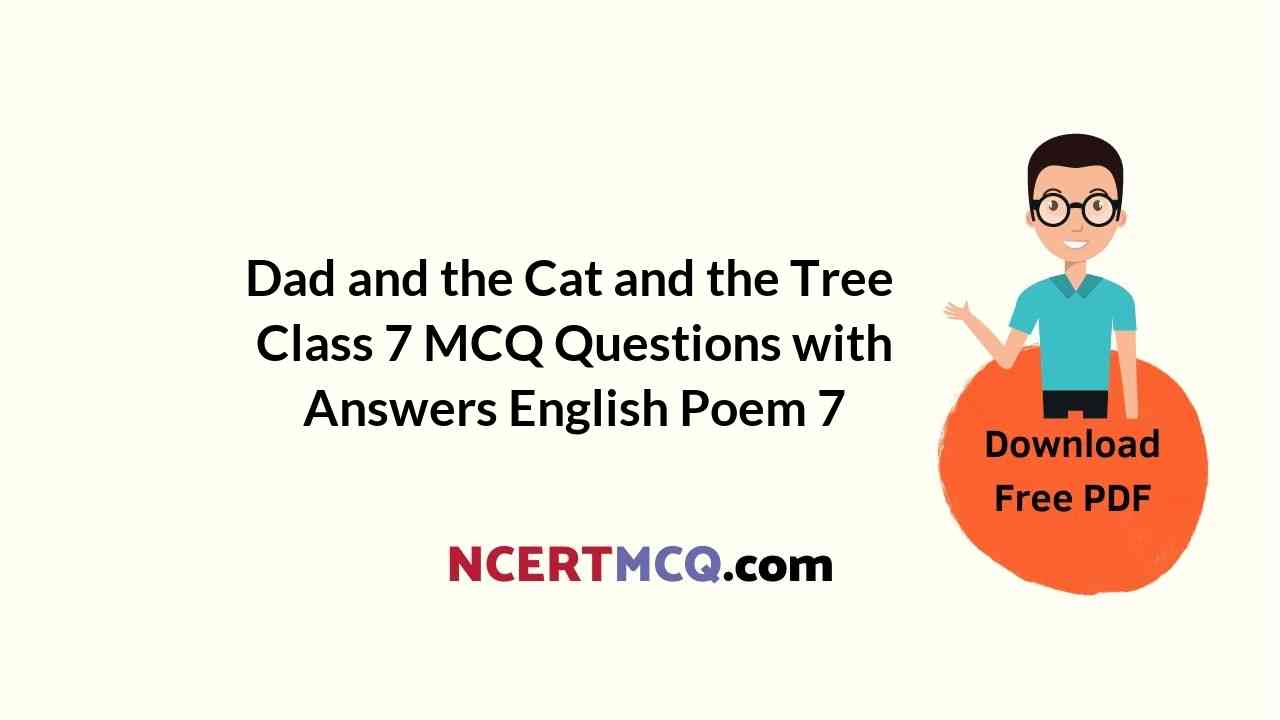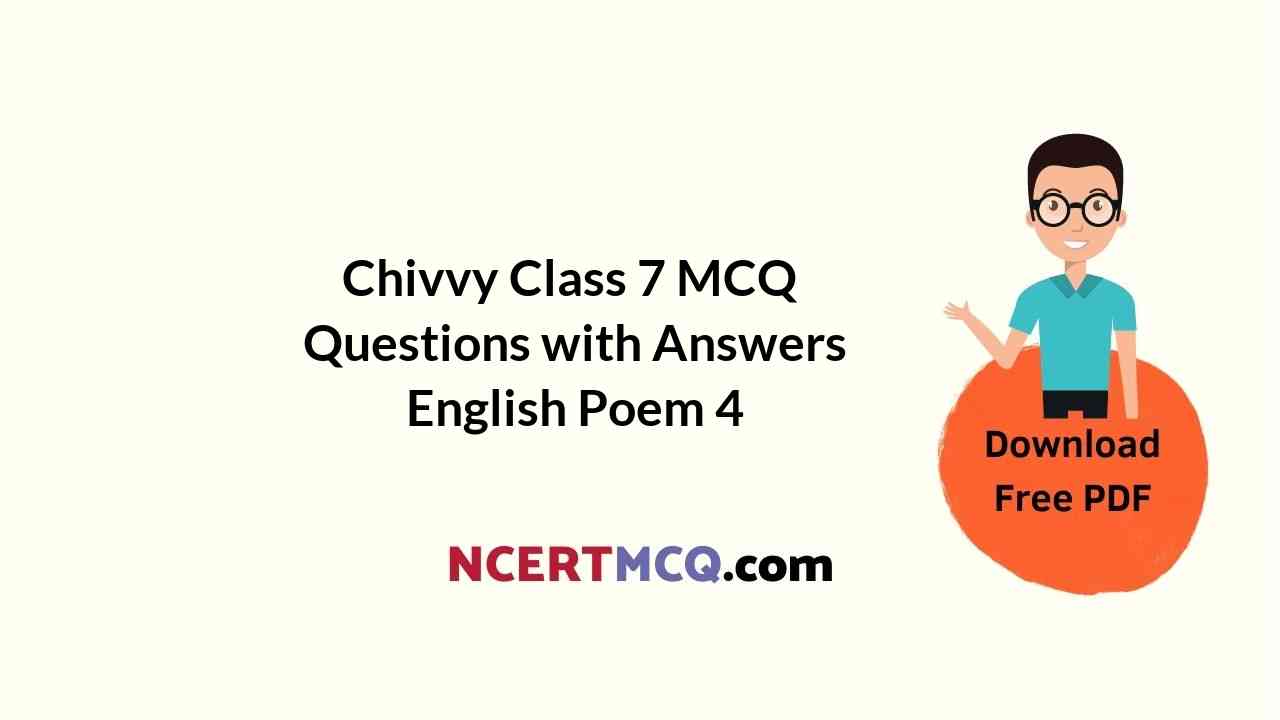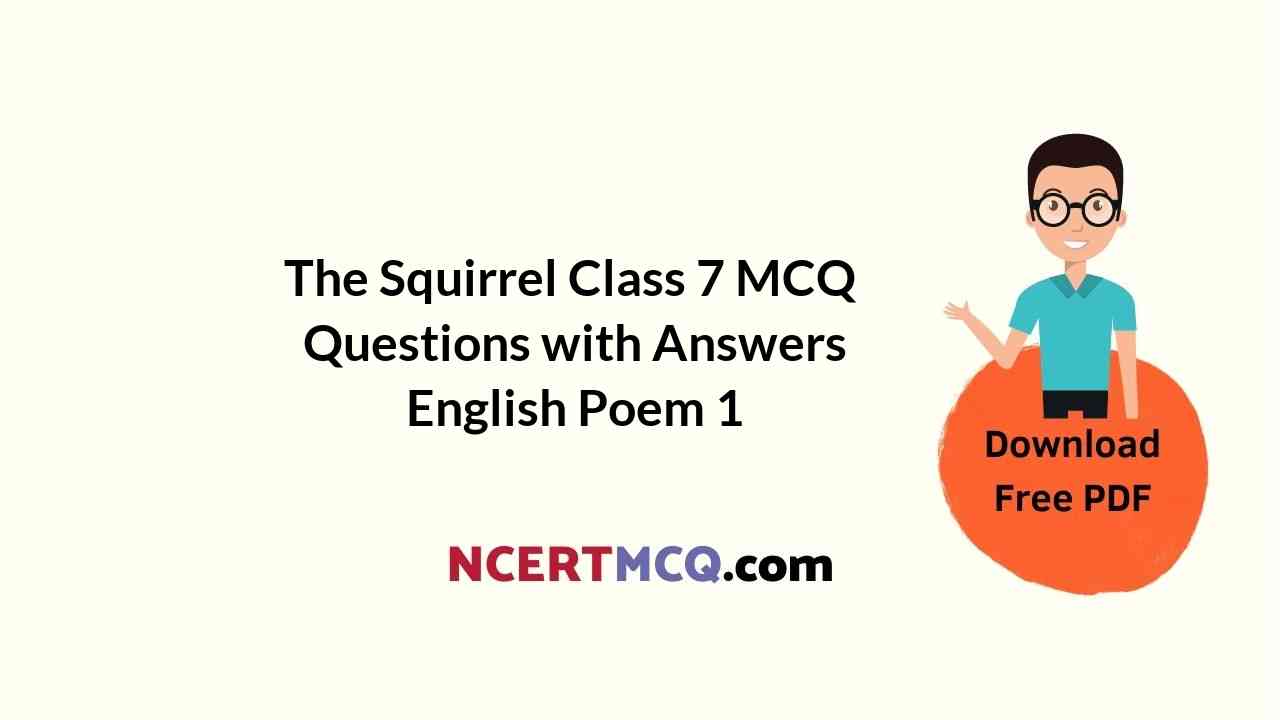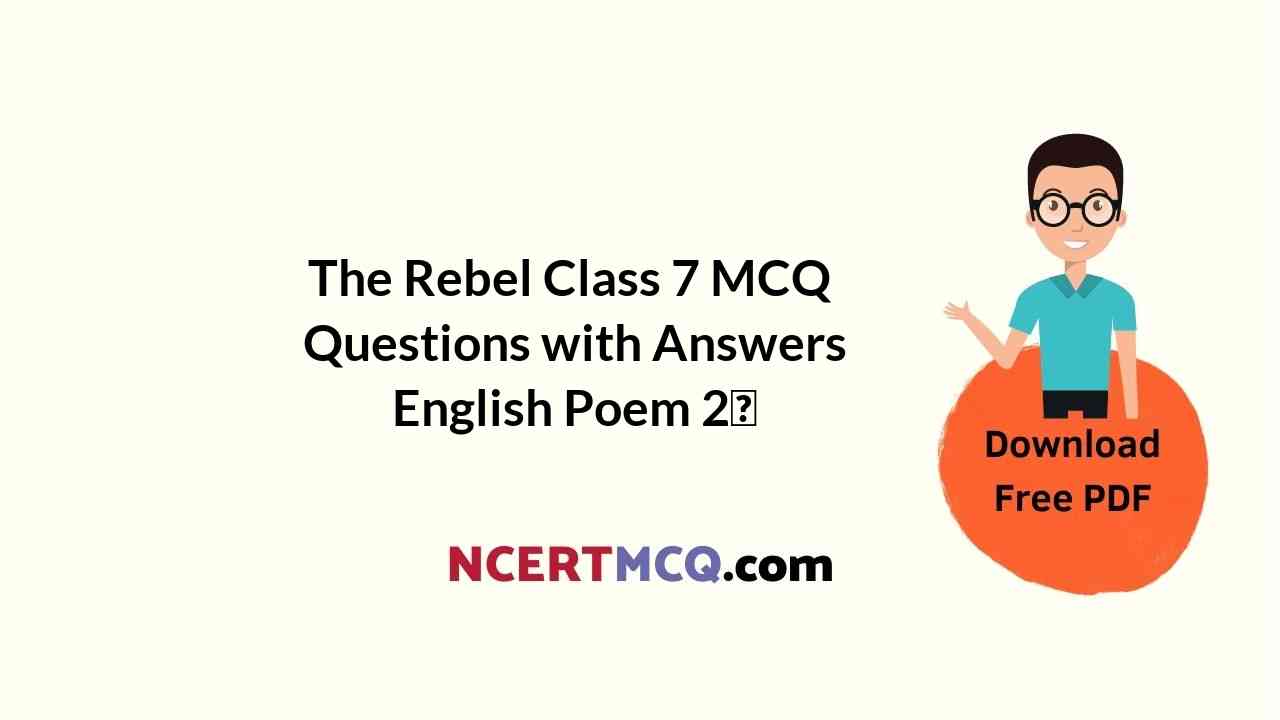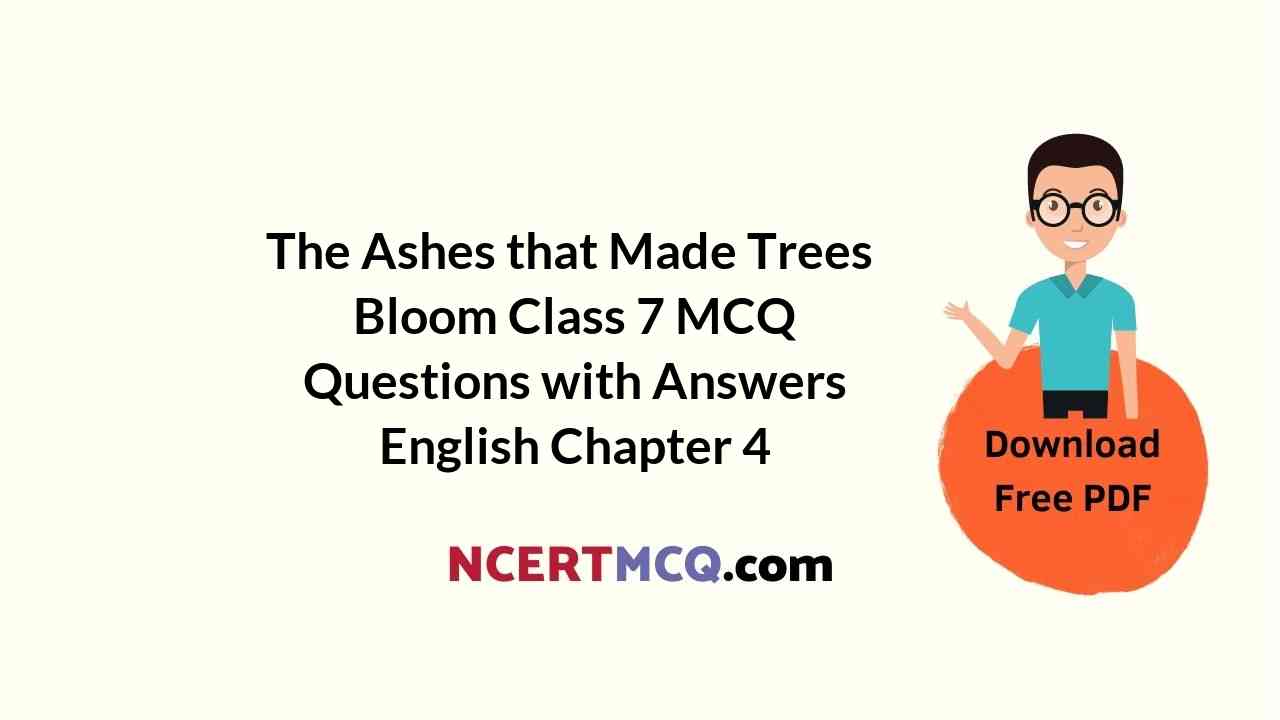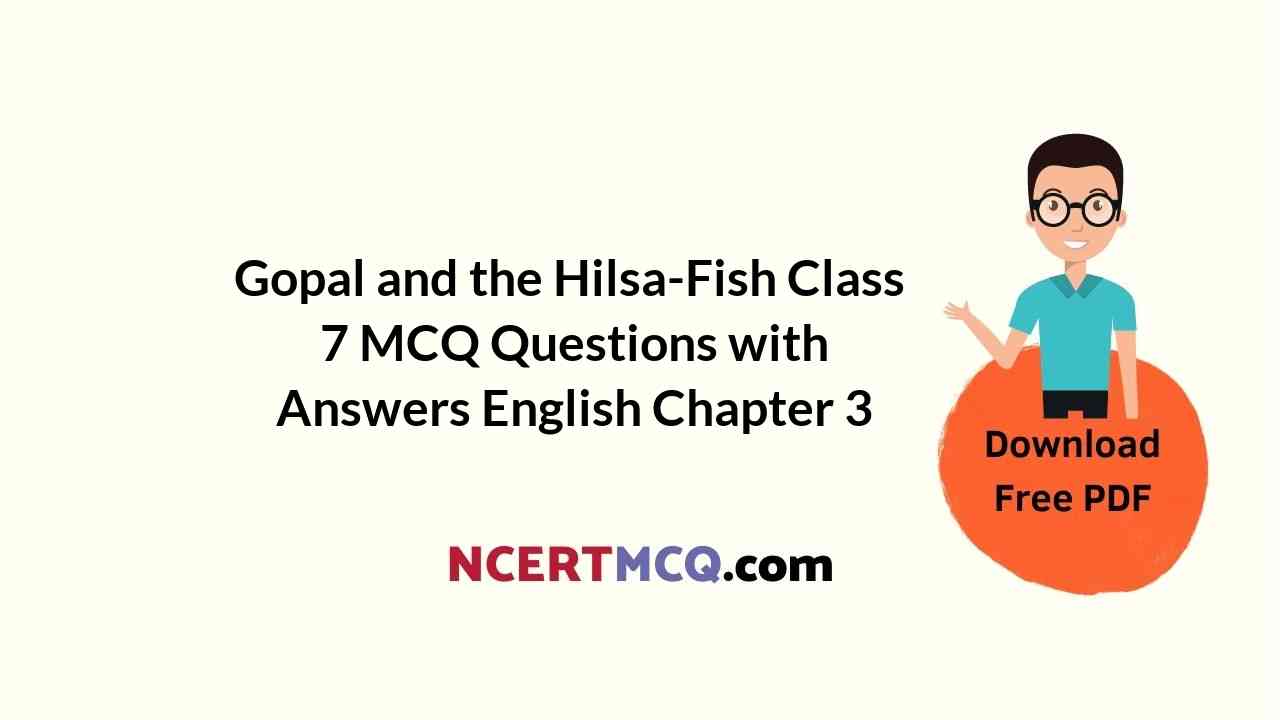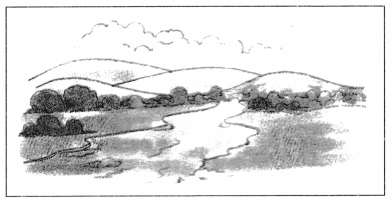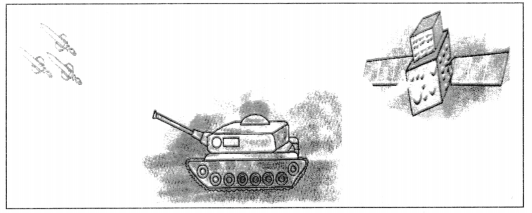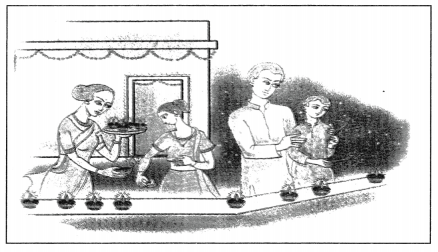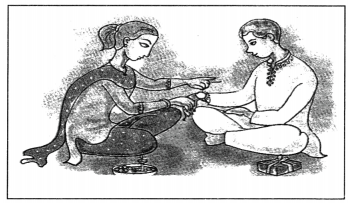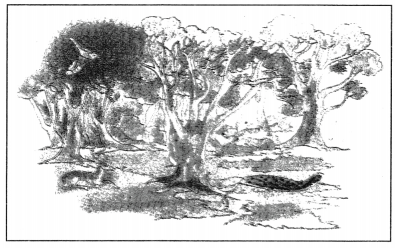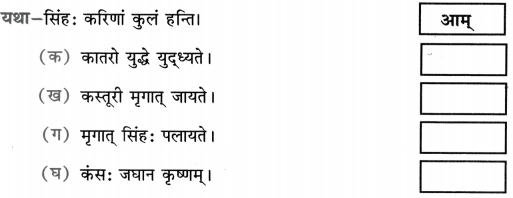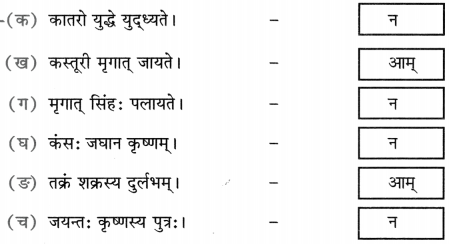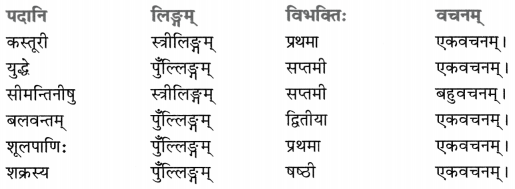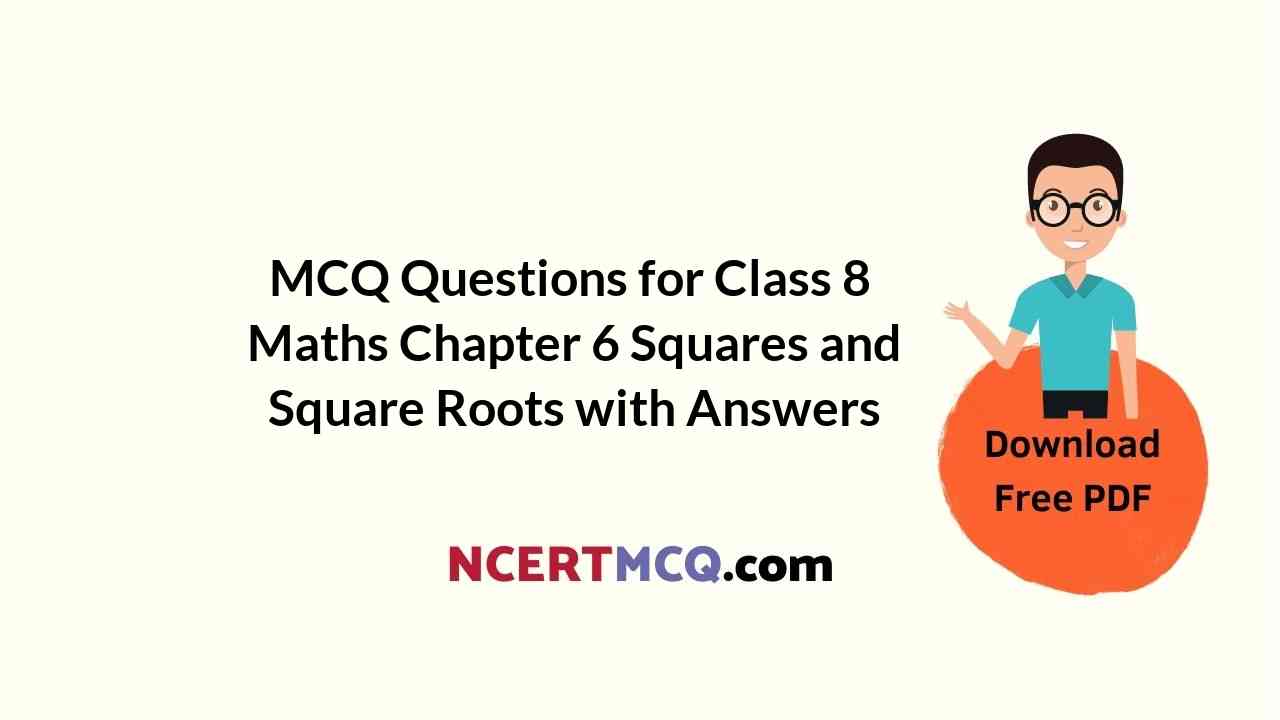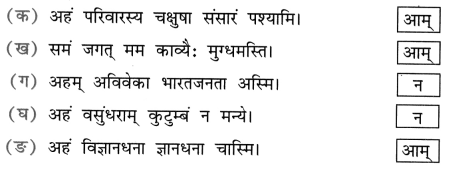Check the below NCERT MCQ Questions for Class 7 English Honeycomb Poem 7 Dad and the Cat and the Tree with Answers Pdf free download. MCQ Questions for Class 7 English with Answers were prepared based on the latest exam pattern. We have provided Dad and the Cat and the Tree Class 7 English MCQs Questions with Answers to help students understand the concept very well. https://ncertmcq.com/mcq-questions-for-class-7-english-with-answers/
Students can also refer to Dad and the Cat and the Tree Poem Class 7 Questions and Answers for better exam preparation and score more marks.
MCQ Questions for Class 7 English Honeycomb Poem 7 Dad and the Cat and the Tree with Answers
Dad And The Cat And The Tree MCQ Questions Class 7 Question 1.
Dad thought that he was:
(a) infallible
(b) an expert climber
(c) super human
(d) none of the above
Answer
(b) an expert climber
Dad And The Cat And The Tree MCQ Class 7 Question 2.
The phrase “A climber like me” expresses:
(a) his pride
(b) his self confidence
(c) his belief
(d) his will power
Answer
(b) his self confidence
The Dad And The Cat And The Tree MCQ Class 7 Question 3.
Dad was planning to:
(a) bring the tree down
(b) cut the branch
(c) bring the cat down
(d) both (a) and (b)
Answer
(c) bring the cat down
Dad Thought That He Was Class 7 Question 4.
The poem is:
(a) a mockery on Dad
(b) a humorous poem
(c) a failure on the folly of Dad
(d) popular -with the kids
Answer
(b) a humorous poem
Class 7 English Dad And The Cat And The Tree MCQ Question 5.
The problem with the cat was:
(a) that it got stuck in the tree
(b) that it was sleeping in the tree
(c) that it never wished to come down
(d) both (a) and (b)
Answer
(a) that it got stuck in the tree
MCQ Of Dad And The Cat And The Tree Class 7 Question 6.
Dad told everyone that
(a) he would not solve the problem
(b) he would solve the problem alone
(c) he cannot solve the problem
(d) none of the above
Answer
(b) he would solve the problem alone
Dad And The Cat And The Tree Class 7 MCQ Question 7.
The poem is:
(a) educative
(b) serious
(c) sad
(d) humorous
Answer
(d) humorous
MCQ Dad And The Cat And The Tree Class 7 Question 8.
Mum’s reactions were
(a) natural
(b) right
(c) wrong
(d) funny
Answer
(a) natural
MCQ Questions For Class 7 English Chapter Dad And The Cat And The Tree Question 9.
The ultimate winner was:
(a) Dad
(b) Mum
(c) cat
(d) the child
Answer
(c) cat
Question 10.
The tree was:
(a) tall
(b) unsteady
(c) short
(d) dangerous
Answer
(b) unsteady
Question 11.
How many times does the narrator’s father try to climb the tree?
(a) once
(b) thrice
(c) twice
(d) never
Answer
Answer: (b) thrice
Question 12.
From where did the narrator’ father got the ladder?
(a) from the shop
(b) made himself
(c) from shed
(d) from his house
Answer
Answer: (c) from shed
Question 13.
What happens after the poet’s father fall off the ladder?
(a) he gives up
(b) he gets up and goes to take rest
(c) he gets up and plans for other trick
(d) none of the above
Answer
Answer: (c) he gets up and plans for other trick
Question 14.
What does mother warn him?
(a) to give up
(b) to bring the cat down immediately
(c) to pick fruit
(d) not to fall again
Answer
Answer: (d) not to fall again
Question 15.
How does father react at mother’s advice?
(a) he finds it a funny joke
(b) he takes it seriously
(c) he obeys her advice .
(d) he doesn’t listen to her
Answer
Answer: (a) he finds it a funny joke
(1)
This morning a cat got
Stuck In our tree.
Dad said. “Right. just
Leave It to me.”
Question 1.
The family found a cat
(a) that was hurt
(b) In their house
(c) that was stuck in their tree
(d) that was hungry
Answer
(c) that was stuck in their tree
Question 2.
Dad said that things would be put right by
(a) the family
(b) him
(c) his wife
(d) the cat
Answer
(b) him
Question 3.
Give the synonym for stuck
(a) freed
(b) trapped
(c) slept
(d) struck
Answer
(b) trapped
(2)
“Fall ?“ scoffed Dad.
“A climber like me?
Child’s play, this s!
You wait and see.”
He got out the ladder
From the garden shed.
It slipped. He landed
In the flower bed.
Question 1.
The father was sure of his
(a) good climbing skills
(b) victozy
(c) defeat
(d) power
Answer
(a) good climbing skills
Question 2.
The father brought the ladder from
(a) the garden
(b) the shed
(c) the kitchen
(d) the room
Answer
(b) the shed
Question 3.
The climbing attempt was
(a) a failure
(b) successful
(c) dangerous
(d) cancelled
Answer
(a) a failure
(3)
“We’ll try Plan B. Stand
Out of the way !
Mum said. “Don’t fall
Again. O.K. ?“
Question 1.
Dad instructs the members of the family to
(a) go Inside the house
(b) stand out of the way
(c) sit on the bench
(d) throw a rope
Answer
(b) stand out of the way
Question 2.
Mother advises Dad
(a) to Jump properly
(b) to be sensible
(c) not to fall again
(d) not to climb
Answer
(c) not to fall again
Question 3.
Dad was like
(a) king Bruce’s Spider who tried
(b) a weeping donkey again and again
(c) a fish out of water
(d) a child who fell repeatedly
Answer
(a) king Bruce’s Spider who tried
(4)
Dad landed wallop
Back on the deck.
Mum said, “Stop it.
You’ll break your neck !”
Question 1.
landed wallop means
(a) land on the wall
(b) land on the top
(c) fell heavily
(d) safe landing
Answer
(c) fell heavily
Question 2.
He landed on the
(a) tree
(b) floor
(c) flower bed
(d) sea
Answer
(b) floor
Question 3.
Mum again advised him
(a) to rest
(b) not to try climbing again
(c) to go inside
(d) to call the cat
Answer
(b) not to try climbing again
(5)
Then he climbed up high
On the garden wall.
Guess what?
He didn’t fall!
Question 1.
Dad again climbed to reach.
(a) the branch
(b) the cat
(c) the tree
(d) the leaves
Answer
(b) the cat
Question 2.
Mum was afraid that he would again
(a) try
(b) fall
(d) shout
(d) swing
Answer
(b) fall
Question 3.
Dad climbed up on the garden wall
(a) high
(b) low
(c) straight
(d) clumsily
Answer
(a) high
(6)
The cat gave a yell
And sprang to the ground.
Pleased as Punch to be
Safe and sound.
Question 1.
The cat yelled as the jump
(a) hit her badly
(b) was hard
(c) broke her
(d) frightened her
Answer
(d) frightened her
Question 2.
The cat landed
(a) safe and sound
(b) clumsily
(c) to frighten
(d) to rush home
Answer
(a) safe and sound
Question 3.
The cat was pleased as
(a) Dad
(b) Punch
(c) anyone else
(d) ever
Answer
(b) Punch
(7)
The tree was wobbly,
The tree was tall.
Mum said, For goodness’
Sake don’t fall ?
Question 1.
Why was the tree not easy to climb?
Answer
The tree was tall but weak and unsteady.
Question 2.
What was Mum’s fear?
Answer
Mum’s fear was that Dad would fall.
Question 3.
Did her fear prove to be true?
Answer
Yes. Her fear proved true.
(8)
‘Never mind,” said Dad.
Brushing the dirt
Off his hair and his face
And his trousers and his shirt,
Question 1.
How was Dad feeling?
Answer
Dad was feeling embarrassed at his fall.
Question 2.
How had Dad got dirt all over him?
Answer
Dad had been trying to climb up the tree. In that process, he had fallen In the flower bed. So there was dirt all over him.
Question 3.
Name the poem from which the passage has been taken.
Answer
The name of the poem Is ‘Dad and the Cat and the Tree’.
(9)
“Fall again?” said Dad.
“Funny joke 1”
Then he swung himself up
On a branch. It broke.
Question 1.
What was ‘Funny joke’?
Answer
According to Dad, his idea of falling again was a funny joke.
Question 2.
Why did he swing himself up on a branch?
Answer
He swung himself up on a branch In order to climb the tree.
Question 3.
What does the word ,lt’ refer to in the last line?
Answer
The word ‘it’ refers to the branch on which Dad had swung himself.
(10)
“Rubbish ? said Dad.
“Now well try Plan C.
Easy as winking
To a climber Like me T”
Question 1.
What was Rubbish?
Answer
Mum had given a warning to Dad. It was not to by to climb the tree again. Dad said the warning was Rubbish.
Question 2.
What was the plan C’?
Answer
The plan C was to climb the garden wall and from there jump on the tree.
Question 3.
Give the meaning of the last two lines.
Answer
Dad calls himself a great climber. He says to execute the plan C was as easy for him as to make an eye-lid move.
(11)
He gave a great leap
And he landed flat
In the crook of the tree-trunk-
Right on the cat!
Question 1.
Where was Dad when he gave a leap?
Answer
Dad was on the garden wall when he leapt.
Question 2.
Why did he take the leap?
Answer
He took the leap to get on the tree.
Question 3.
What was the result of the leap?
Answer
He reached the tree but the cat had Jumped down. He had Jumped (leapt) to save the cat.
(12)
So it’s smiling and smirking
Smug as can be,
But poor old Dads
Still
Stuck
Up
The
Tree
Questions 1.
Who was smiling and smirking?
Answer
The cat was smiling and smirking.
Question 2.
Where was Dad?
Answer
Dad was In the crook of the tree.
Question 3.
Point out the Irony of the situation.
Answer
The Irony of the situation is that Dad had come up the tree to save the cat. Now the cat had come down of Its own and bad was trapped in the tree.
We are providing NCERT MCQ Questions for Class 7 English Honeycomb Poem 7 Dad and the Cat and the Tree with Answers Pdf free download will help you. If you have any queries regarding CBSE Class 7 English Poem Dad and the Cat and the Tree MCQs Multiple Choice Questions with Answers, drop a comment below and we will get back to you soon.
